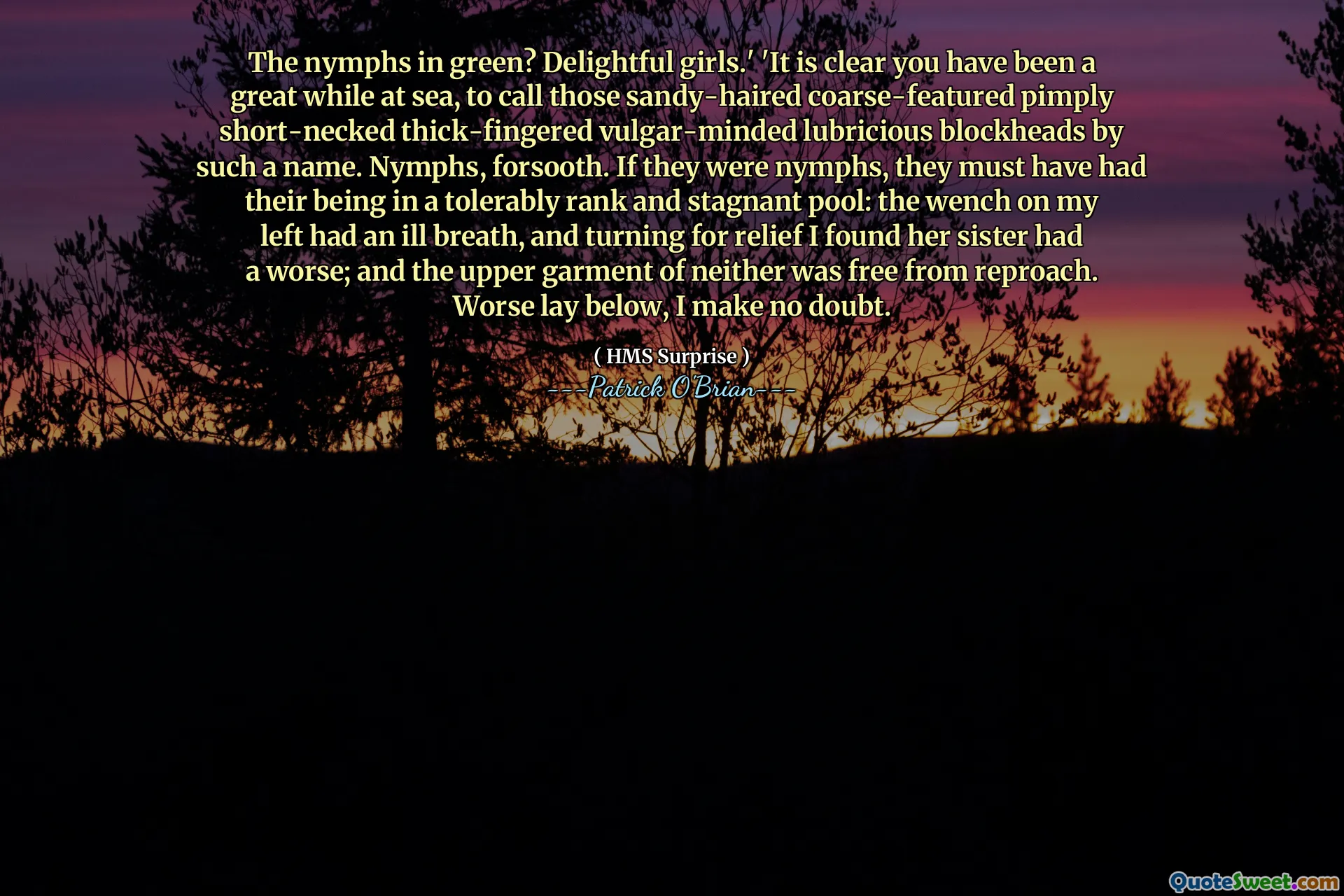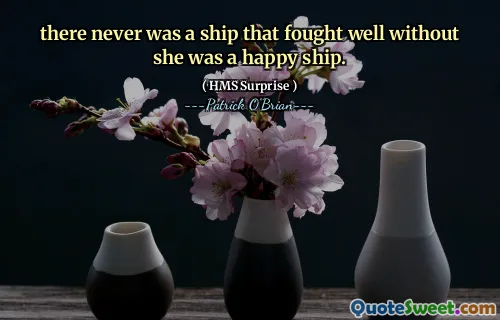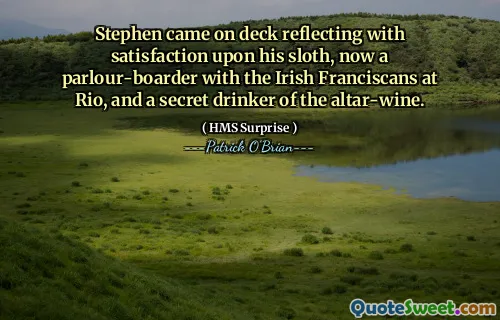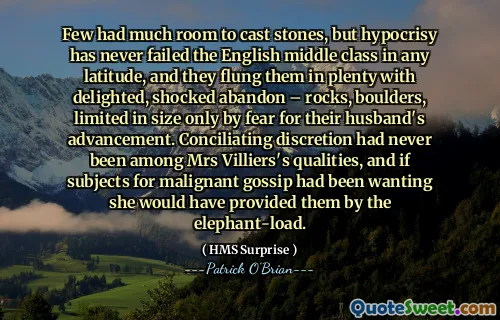
The nymphs in green? Delightful girls.' 'It is clear you have been a great while at sea, to call those sandy-haired coarse-featured pimply short-necked thick-fingered vulgar-minded lubricious blockheads by such a name. Nymphs, forsooth. If they were nymphs, they must have had their being in a tolerably rank and stagnant pool: the wench on my left had an ill breath, and turning for relief I found her sister had a worse; and the upper garment of neither was free from reproach. Worse lay below, I make no doubt.
The excerpt humorously critiques the appearance and demeanor of a group of women, whom the speaker refers to as "nymphs." Instead of finding any divine beauty or grace, the speaker describes them as coarse-featured and vulgar, suggesting that they are far from the idealized image of nymphs associated with nature and charm. This stark contrast serves to highlight the speaker's disillusionment and disdain for the women surrounding him.
The use of vivid, unpleasant imagery—such as bad breath and unkempt garments—emphasizes the speaker's revulsion. It implies a deeper commentary on societal norms and expectations of beauty, suggesting that the romanticized ideals often fail to align with reality. The speaker's sardonic tone and sharp observations provide both humor and insight, creating a lasting impression of his encounter.











